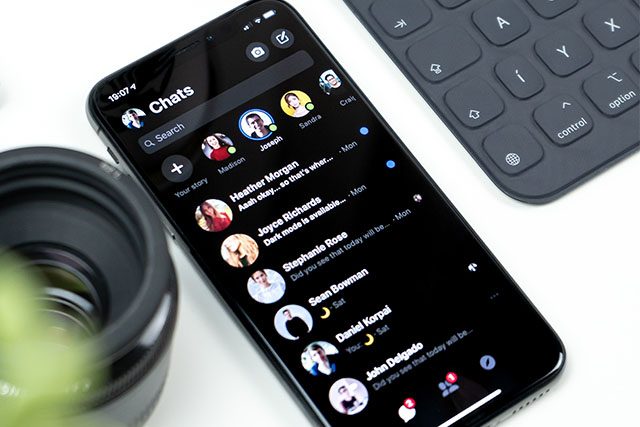The Supreme Court has ruled that pictures and conversations retrieved from Facebook messenger accounts are admissible as evidence in court.
In G.R. No. 247348, uploaded on the SC website on June 16, 2022, the high court upheld the conviction of a petitioner named Christian Cadajas, for violating Republic Act 9775 or the Anti-Child Pornography Act.
In the 31-page ruling written by Associate Justice Jhosep Lopez, the court rejected the petitioner’s claim that the court should not accept the message thread presented as evidence against him since it was “obtained in violation of his right to privacy.”
According to the case’s antecedents, in April 2016, Cadajas started a romantic relationship with AAA, a 14-year-old girl. They communicated through Facebook Messenger, which the latter accessed through her mother, BBB’s, mobile phone.
Upon forgetting to log out of her account from her mother’s phone, BBB learned of their relationship and had seen messages from Cadajas persuading her daughter to send him sensitive photos of herself, to which AAA relented.
This prompted AAA to delete the conversations between her and Cadajas on her account. Still, BBB forced her to access Cadajas’ Facebook Messenger account, from which they obtained a copy of their conversations.
The tribunal decided that since the Bill of Rights, which includes the right to privacy, was meant to “shield citizens from government intrusions, the right to privacy and its consequent effects on the rules on admissibility of evidence cannot be used against private individuals.”
In Cadajas’ case, a private individual, AAA, accessed and obtained the messages and photos in the Facebook Messenger chat thread, not “through the efforts of police officers or any State agent.”
The high tribunal ruled that since Cadajas willfully gave AAA the password to his Facebook Messenger account, he “lost a reasonable expectation of privacy over the contents of his account.”
According to the decision, the petitioner’s privacy is still not violated even if BBB coerced AAA into accessing their conversation. “By allowing another person access to his account”, he had made its content open to AAA, and to any person she might show it to, regardless of whether she was coerced to do so.
The court also ruled that “while child pornography is defined and penalized under a separate law, it should be regarded as mala in se, or acts that are inherently immoral.” With this, proof of criminal intent by the accused is required.
In the petitioner’s case, it was established that “he had the intent to induce AAA, a minor, to exhibit her private parts” because his persuasion led AAA into sharing the intimate photos.
The top court found Cadajas guilty beyond reasonable doubt and was sentenced to reclusion perpetua, and was asked to pay a fine of P1 million.










